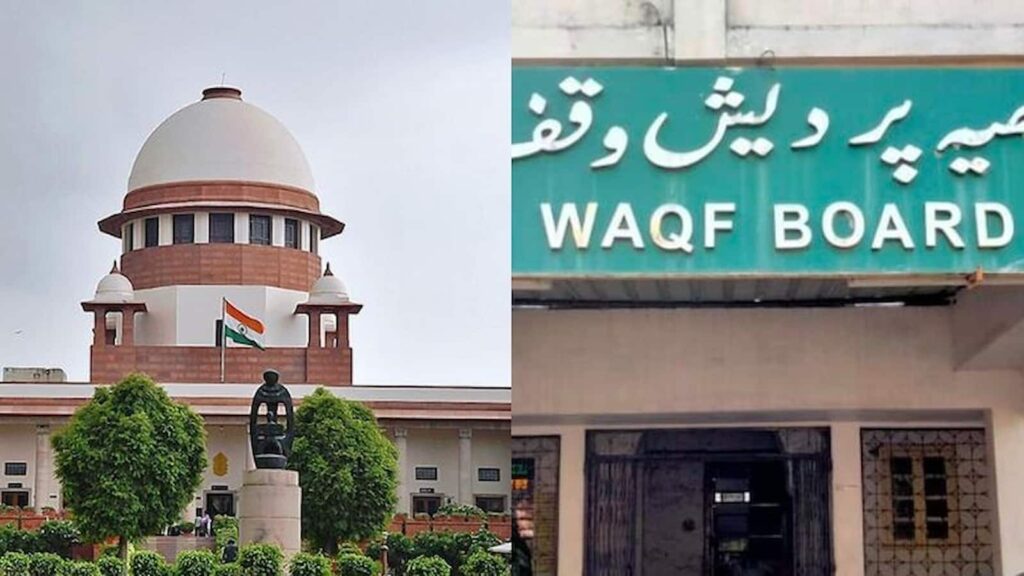Waqf Amendment Act 2025 | Political Stunt or Welfare for People
Why Waqf Amendment 2025 is required
The Waqf (Amendment) Act, 2025, is presented as a measure to reform and improve the management of Waqf properties in India. The key reasons and objectives behind this amendment are:
- Improving Efficiency and Transparency:
A primary goal is to address perceived shortcomings in the existing Waqf Act of 1995.
The amendment aims to enhance the efficiency of Waqf boards and bring greater transparency to the administration of Waqf properties.
This includes the implementation of technology to better manage Waqf records and streamline administrative processes.

Source:Google.com
- 2. Updating Definitions and Procedures:
The amendment seeks to update the definitions related to Waqf properties, ensuring they are clear and unambiguous.
It also aims to improve the property registration process, making it more robust and reliable.
- 3. Ensuring Accountability:
The amendment introduces measures to increase accountability within Waqf boards, reducing the potential for corruption and mismanagement.
This includes changes to the composition of Waqf boards and tribunals.
- 4. Modernizing Governance:
There is a push to modernize the governance of Waqf properties, adapting to contemporary needs and challenges.
This includes adjusting the composition of the waqf boards to include non muslim members.
- 5. Adressing Legal Contradictions:
The aim is to remove legal contradictions that exsisted within the previous laws, to create a more uniform legal framework.
- 6. Removal of “Waqf by use”:
The removal of “Waqf by use” is designed to create a more strict legal definition of what is a waqf property. Requiring documentation.In essence, the Waqf (Amendment) Act, 2025, is intended to modernize the management of Waqf properties, ensuring they are administered efficiently, transparently, and in accordance with the law.
Why People are against the waqf bill
Power to declare government property as non-Waqf:
The bill allows the government to declare any property identified as Waqf to cease being so. This provision is viewed with suspicion, with concerns that it could be used to take over Waqf properties.
- Abolition of “Waqf by user”:
The bill seeks to abolish the concept of “Waqf by user,” where properties used for religious or charitable purposes for a long time without formal documentation are considered Waqf. Critics fear this will lead to the loss of numerous historically significant properties, especially those lacking formal records, making them vulnerable to disputes and potential confiscation.
- 2. Government control:
Critics argue that the bill grants excessive power to the government in the management and determination of Waqf properties, undermining the Muslim community’s right to manage its religious endowments. They view this as a direct infringement on their religious autonomy guaranteed under Articles 25 and 26 of the Constitution.
- 3. Inclusion of non-Muslim members:
A major point of contention is the provision allowing for the inclusion of non-Muslim members in the Waqf boards and the Central Waqf Council. Opponents argue that Waqf institutions are inherently Islamic religious trusts, and including non-Muslims in their management violates the religious character and autonomy of these bodies. They question why a similar arrangement isn’t proposed for Hindu religious trusts.
- 4. Political motivations:
Marginalization of Muslims: Some opposition leaders and Muslim organizations perceive the bill as a politically motivated move to marginalize the Muslim community and usurp their properties. They argue that the government is pushing this bill despite widespread opposition to appease a specific voter base.
Lack of consultation: Critics argue that the bill was passed without adequate consultation with Muslim stakeholders and that their concerns were not properly addressed.In summary, the opposition to the Waqf (Amendment) Act, 2025 stems from concerns about potential government overreach into the religious affairs of Muslims, the future status and protection of Waqf properties, the fairness and transparency of the proposed management framework, and the underlying political motivations behind the legislation.
